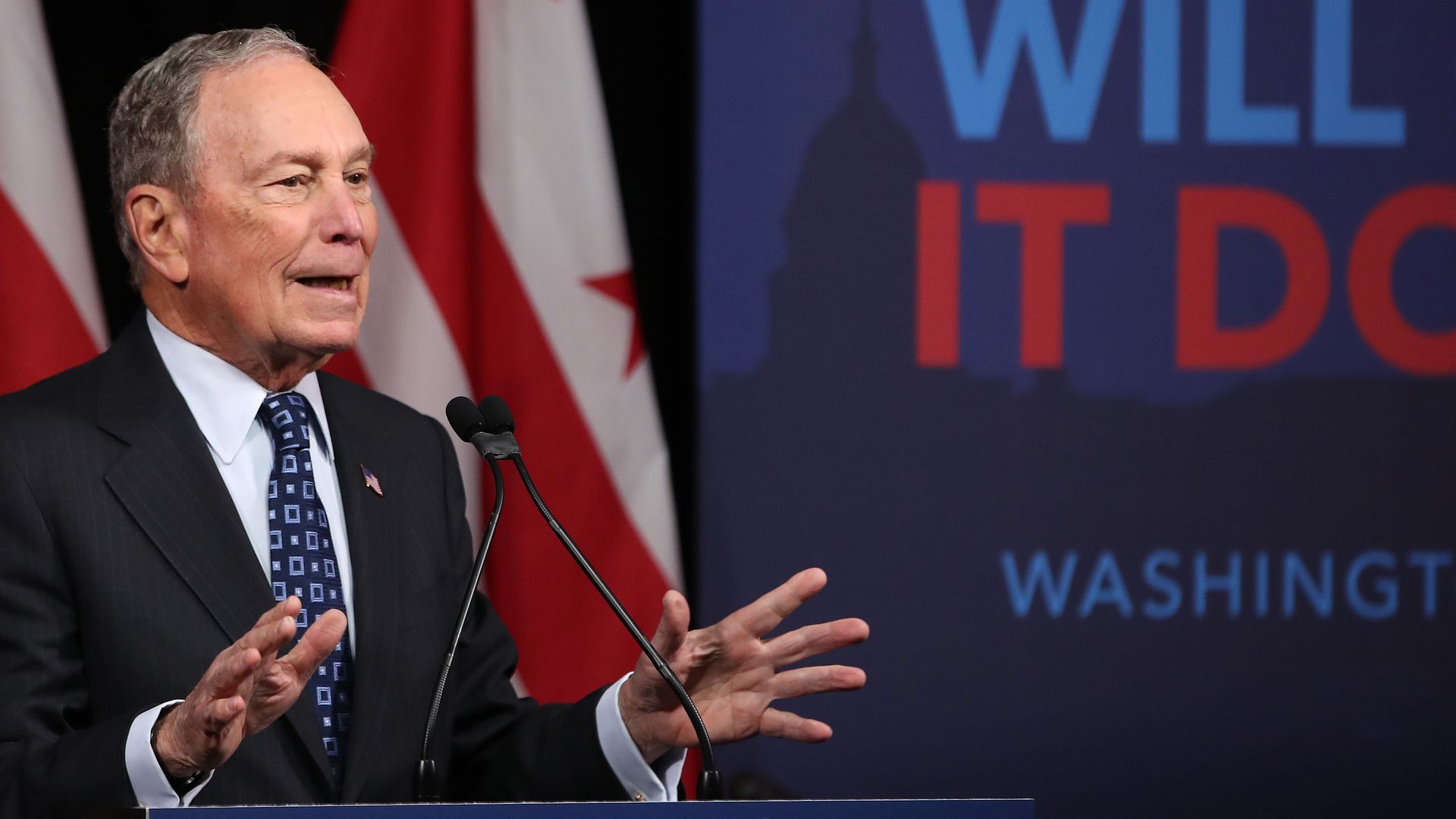Feb 1, 2020 - Politics & Policy
Bloomberg pitches raising $5 trillion by taxing the wealthy
Add Axios as your preferred source to
see more of our stories on Google.

Bloomberg in D.C. on Jan. 30. Photo: Mark Wilson/Getty Images
Add Axios as your preferred source to
see more of our stories on Google.

Bloomberg in D.C. on Jan. 30. Photo: Mark Wilson/Getty Images